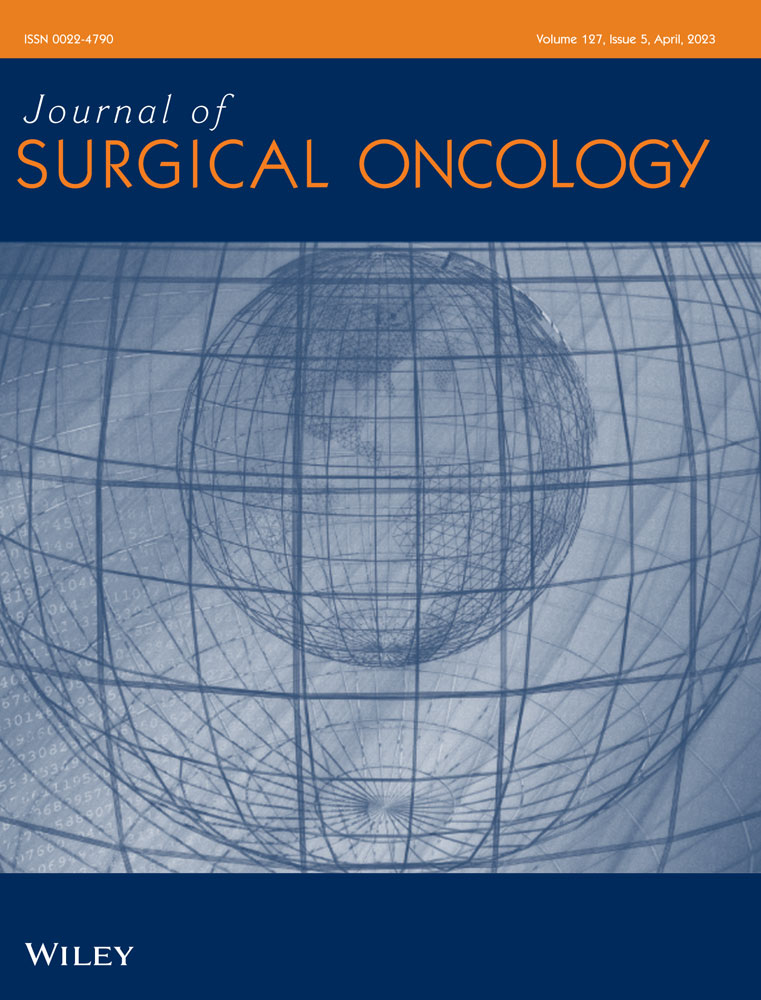Sarcopenia and frailty as predictors of surgical morbidity and oncologic outcomes in retroperitoneal sarcoma
Robert J. Canter and Sarah B. Bateni contributed eqully to this study.
Abstract
Background
Retroperitoneal sarcomas (RPS) are rare tumors for which surgical resection is the principal treatment. There is no established model to predict perioperative risks for RPS. We evaluated the association between preoperative sarcopenia, frailty, and hypoalbuminemia with surgical and oncological outcomes.
Methods
We performed a prospective cohort analysis of 65 RPS patients who underwent surgical resection. Sarcopenia was defined as Total Psoas Area Index ≤ 1st quintile by sex. Frailty was estimated using the modified frailty index (mFI). Logistic regression models were used to assess predictors of 30-day postoperative morbidity. The Kaplan–Meier method with log-rank test was utilized to assess factors associated with overall (OS) and recurrence-free survival (RFS).
Result
Sarcopenia was associated with worse OS with a median of 54 compared with 158 months (p = 0.04), but no differences in RFS (p > 0.05). Hypoalbuminemia was associated with worse OS with a median of 72 compared with 158 months (p < 0.01). MFI scores were not associated with OS or RFS (p > 0.05). Sarcopenia, mFI, and hypoalbuminemia were not associated with postoperative morbidity (p > 0.05).
Conclusion
This study suggests that sarcopenia may be utilized as a measure of overall fitness, rather than a cancer-specific risk, and the mFI is a poor predictive measure of outcomes in RPS.
CONFLICTS OF INTEREST
The authors declare no conflicts of interest.
Open Research
DATA AVAILABILITY STATEMENT
The data that support the findings of this study are available from the corresponding author upon reasonable request.




